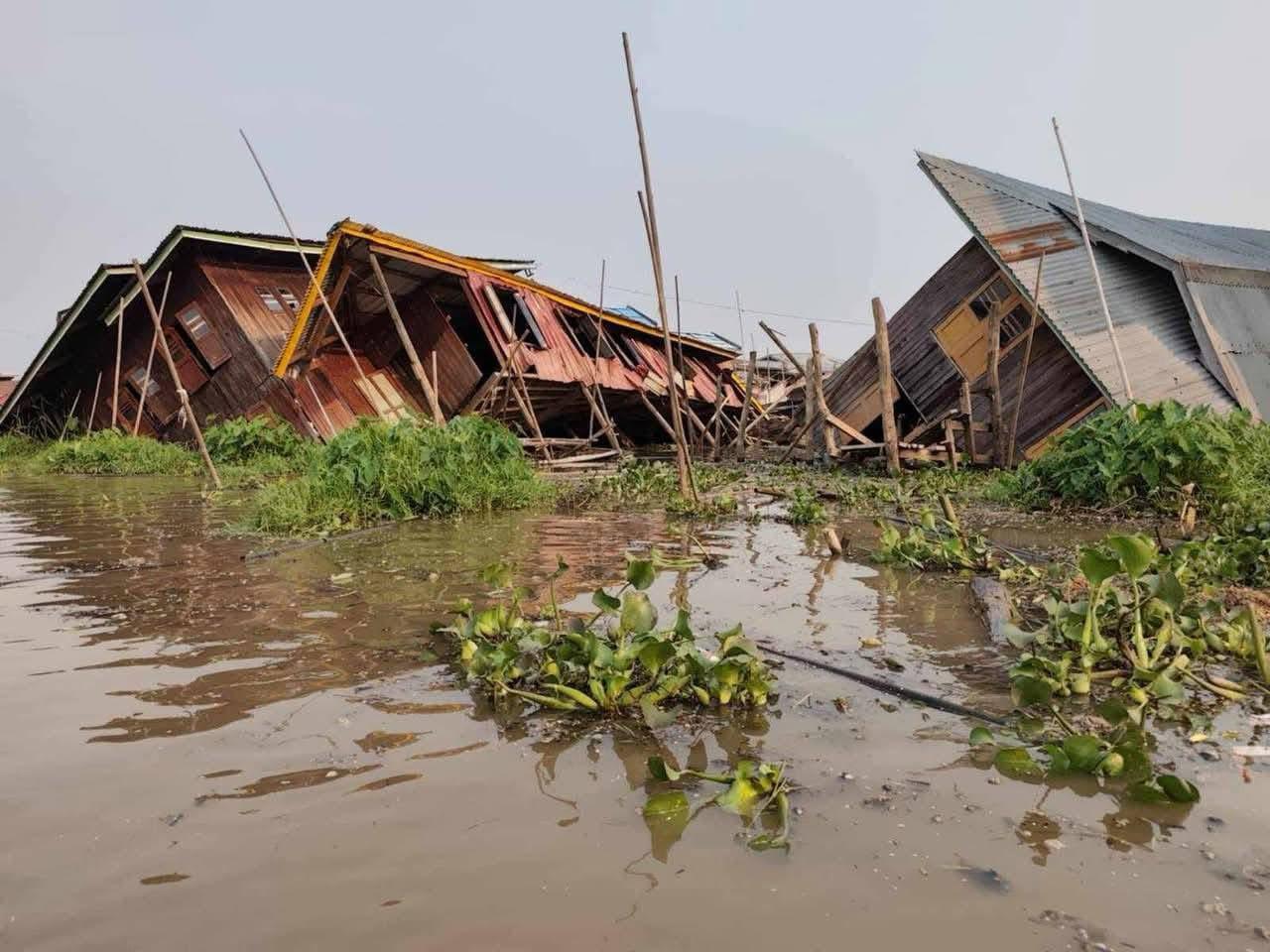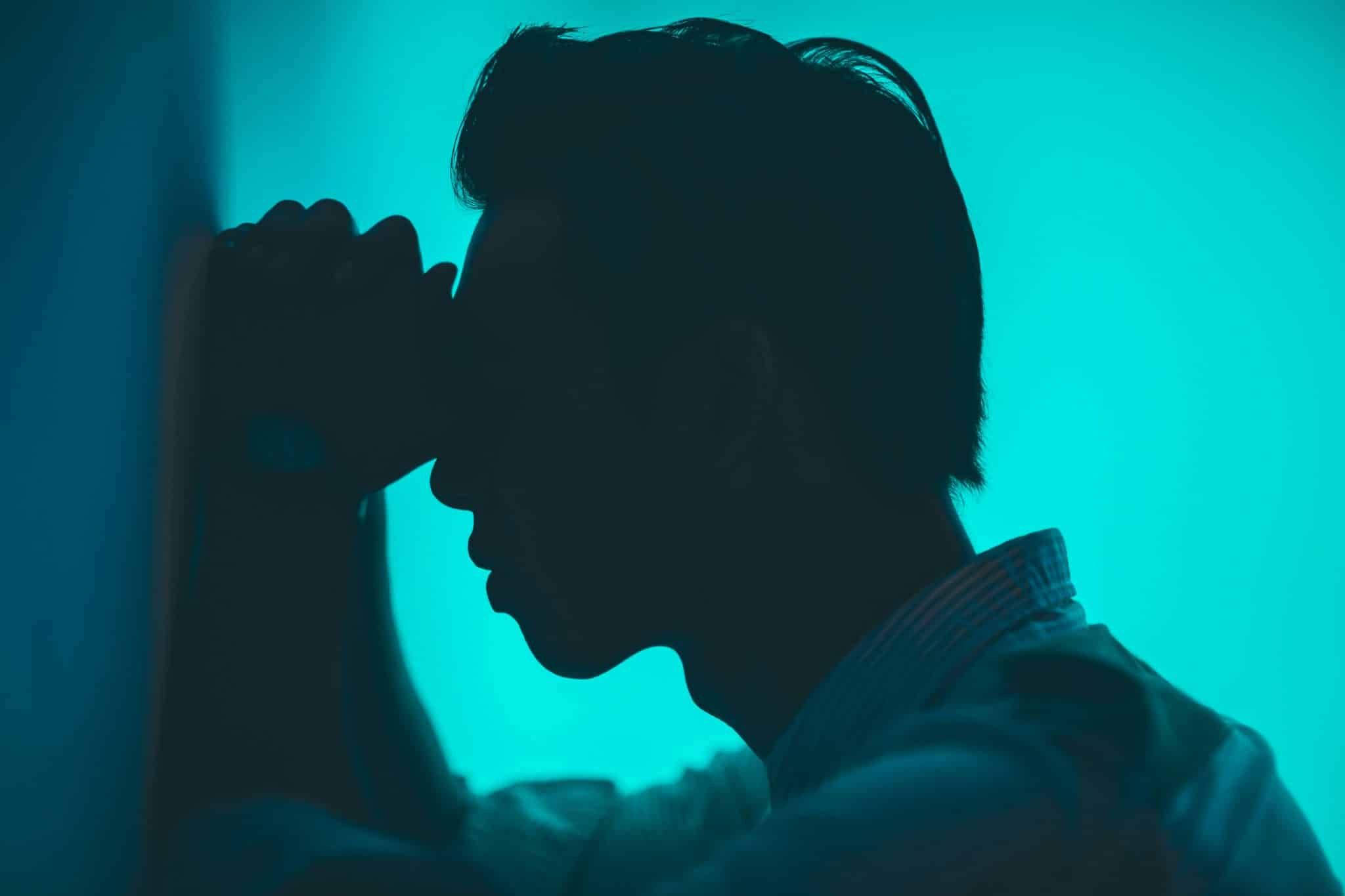“Disabled people are not God’s afterthought,” says pastor with cerebral palsy
On International Day of Persons with Disabilities (December 3), Salt&Light honours the lives of those with special needs.
Priscilla Goy // December 3, 2018, 2:08 am
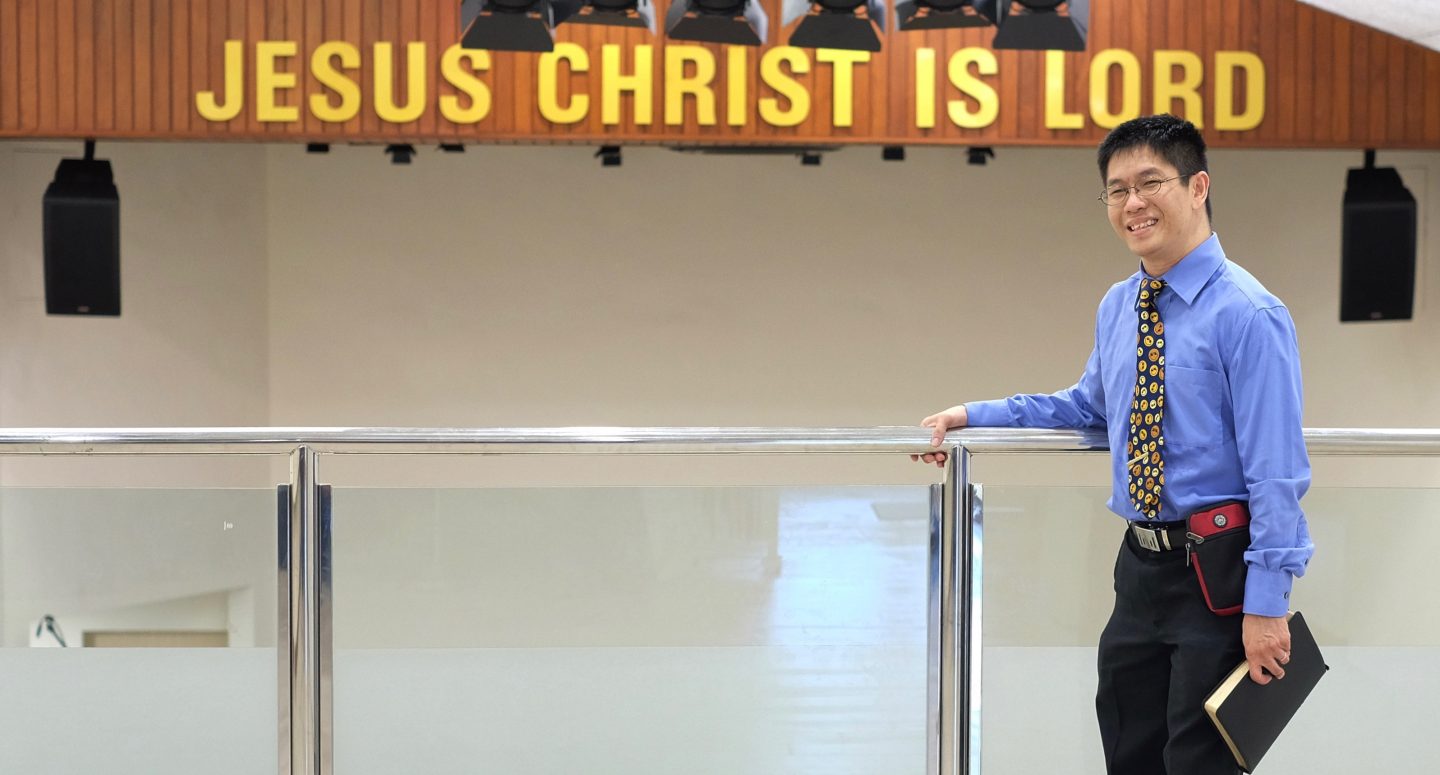
Being born with cerebral palsy has not stopped Pastor Michael Yeong from a full family life and a busy job as pastor at Bethesda Church Bukit Arang. Photo by Tan Huey Ying.
As a pastor, Michael Yeong’s full-time job involves shepherding other Christians and helping them in their weakness. Yet, he himself has lived with a “weakness” since birth.
The 48-year-old pastor at Bethesda Church Bukit Arang (BCBA) was born with cerebral palsy due to a brain injury during his birth. It had been a difficult delivery for his mother, and his twin brother had died at birth.
Cerebral palsy mainly affects his legs, making it hard for him to balance, walk quickly or navigate stairs without railings. He walks with a staggering gait, and gets around on a motorised scooter for longer distances.
Despite his disability, he has multiple responsibilities at BCBA – he is in charge of discipleship and Christian education, the family life ministry, the hospitality team, funerals and bereavement and, next year, he will head the ministry for the elderly.
“I’m not the church’s senior pastor, but the seniors’ pastor,” he jokes.
His humour, bright spirit and willingness to be a pastor come as a surprise, given that his prayers for physical healing have yet to be answered.
Made perfect in weakness
Growing up, he did not feel discriminated against because of his disability. While his parents took him to temples, mediums, and both Western and Chinese doctors to “find a cure”, he never felt that they were embarrassed by him.
Friends at school and at an Anglican church he had attended since he was 10 were also generally helpful and supportive.
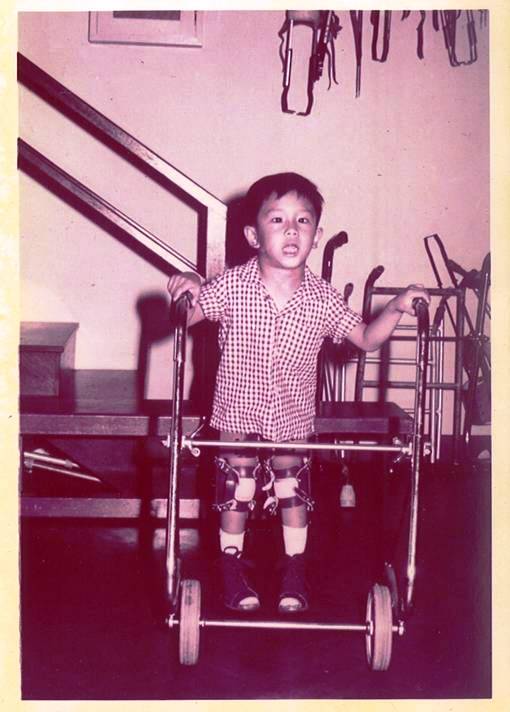
Pastor Yeong was born with cerebral palsy due to a brain injury during his birth. Photo courtesy of Ps Michael Yeong.
His two older sisters took him to Sunday School at the church, and he continued going, mainly for the friends he enjoyed playing with.
After he joined the youth ministry, he had a greater appreciation of Christianity and God’s unconditional love for him, and was baptised at the age of 15. His parents, who had an altar at home, had initially opposed his decision, but eventually they, too, became Christians and were baptised in their 60s.
“There was a lot of hurt and questions of, ‘Why is it that just because of my disability, I can’t work with youth?’”
“I wasn’t ignorant or oblivious to my handicap, but I didn’t feel hindered or shortchanged,” he said.
After his ‘A’ Levels, he worked in a travel agency for three years, then he worked in the church he grew up in.
As a ministry staff member for seven years, he mainly helped the youth in the church. He did all he could to meet the demands of the role – he loved the youth, and felt that they loved him too.
Then, for the first time, he was told to stop doing something that he loved to do, because of his disability.
After years of helping the youth, he was asked by the church’s senior pastor to move out of the youth ministry, as a more mobile person was preferred.
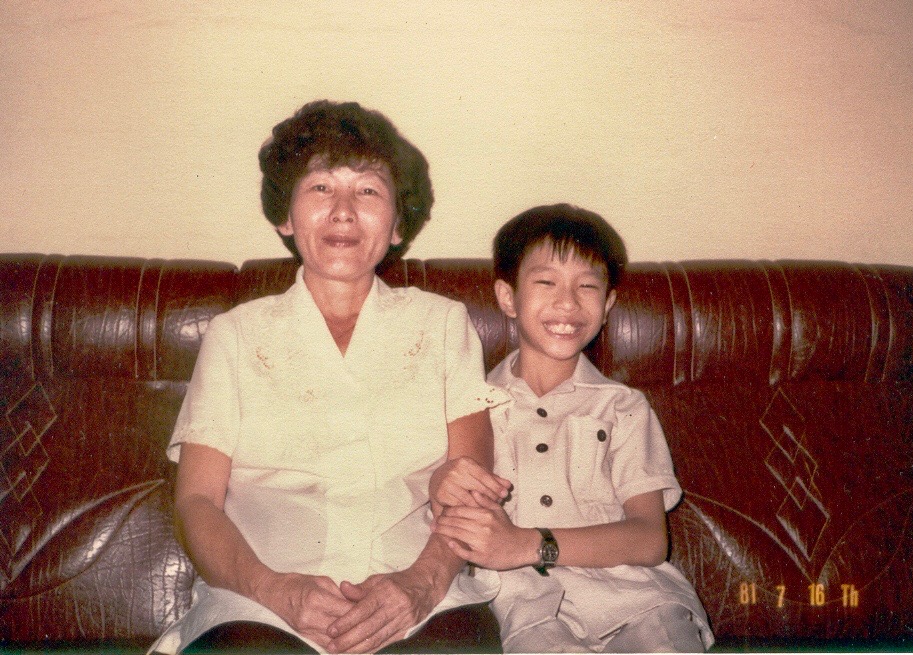
A young Pastor Yeong with his mother. Although his parents took him to temple mediums and sought cures for his disability, they never made him feel like he was an embarrassment, he says. They have since converted to Christianity and were baptised in their 60s. Photo courtesy of Ps Michael Yeong.
“That was when the reality of my disability hit home, and it took me two years to walk through that,” he says.
“What is considered my weakness is actually my strength, as I learn to lean on God more and more.”
“There was a lot of hurt and questions of, ‘Why is it that just because of my disability, I can’t work with youth?’”
But he hastens to add that he does not blame the pastor and tells Salt&Light that it is not his intention to dishonour him.
“He simply wanted to deploy his staff as best as he could, and felt that I would be a better fit elsewhere.”
During his subsequent two years of soul searching, Pastor Yeong learnt to accept the physical limitations that came with his disability.
“I had to embrace the fact that I am disabled, I am different. I came to a place where I said, ‘I am who I am, and I accept that.’” (1 Corinthians 15:10)
2 Corinthians 12:9 was a Bible verse that sustained him then.
“What is considered my weakness is actually my strength, as I learn to lean on God more and more in the midst of my disability.”
In fact, he is grateful for the episode of being moved out of the youth ministry, he says.
“Before the incident, my vision was very narrow. Working with youth was all I could think about. But when I was asked to move out of the youth ministry, I was able to see that there were actually many other opportunities to serve him. He expanded my vision.”
When God chooses not to heal
Pastor Yeong joined his current church, BCBA, after graduating with a Masters of Divinity in 2004. He was connected with BCBA through a lecturer at Singapore Bible College, where he obtained his Masters degree. He also has a Bachelor’s degree in theology and a Masters of Arts in counselling.
Due to his disability, there are tasks typically required of pastors which he cannot do.
“God is sovereign. He can choose to heal if he wants to, but if he doesn’t, there is a purpose behind it.”
He does not go on as many mission trips, for instance, since he takes a longer time to walk. He also does not baptise people in immersion, but leaves that task to other pastors instead.
“It’s okay if I’m not the one baptising the person. It’s more important that he gets baptised, than whether he’s baptised by me or not.”
He admits that when he was younger in the Christian faith, he had often wondered if he would be healed of his disability.
“I went for miracle rallies, people prayed for me, and I had hoped that I would be healed. But after some years passed and nothing happened, I began to think that maybe it wasn’t God’s purpose, for whatever reason, to heal me.”
Meanwhile, as he matured in his faith and better understood God’s character, his trust in God’s sovereignty grew.
“God is sovereign. He can choose to heal if he wants to, but if he doesn’t, there is a purpose behind it. I may not understand the purpose, but I trust that God knows and He knows what’s best. And I would choose to glorify him, whether I get healed or not.”
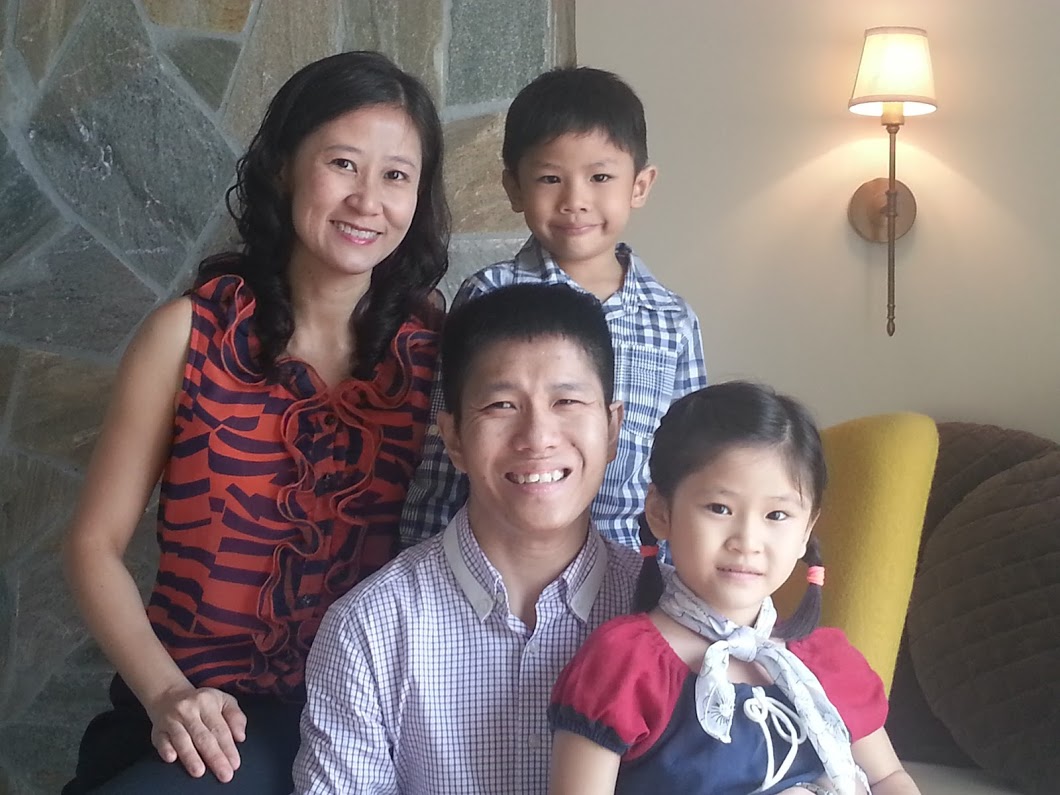
Pastor Yeong with his wife, Cynthia, 47, and children Nathanael, 9, and Abigail, 11. Photo courtesy of Ps Michael Yeong.
That said, when he goes to heaven, he would like to ask God why he was born with cerebral palsy.
“There are certain things that I won’t understand till I get to heaven, so yes, that would be one of the questions I’d ask. And a related question would be, ‘If I had been able-bodied, wouldn’t I be able to do much more?’”
But he notes that his disability has also taught him life lessons such as perseverance – lessons which he has shared with other people, including the able-bodied.
“Actually, all of us have disabilities,” he says. “For some, their disability is less visible, while mine is more visible. We live in a fallen world, we’re all broken in different ways. As a counsellor, I see many emotionally broken people. On the outside, they look very normal, but inside, they’re struggling with many issues.”
In the image of God
“To me, disability is a God-given gift that no one wants to receive,” he says wryly.
“My disability has taught me lessons that I would otherwise not have learnt.”
“I believe that everything we are is not an afterthought. God, in His wisdom – we may not understand why – has created us to glorify Him.
“Maybe He feels that I can handle the disability. My disability has also taught me lessons that I would otherwise not have learnt.”
He draws parallels to the formation of a pearl: As an oyster gets irritation, it covers up the irritant with layers of a substance to protect itself, and this eventually becomes a pearl.
“How is a pearl formed? It’s formed through suffering. Without the irritation, the oyster would just remain an oyster. But through the irritation and pain, a beautiful pearl is formed.”
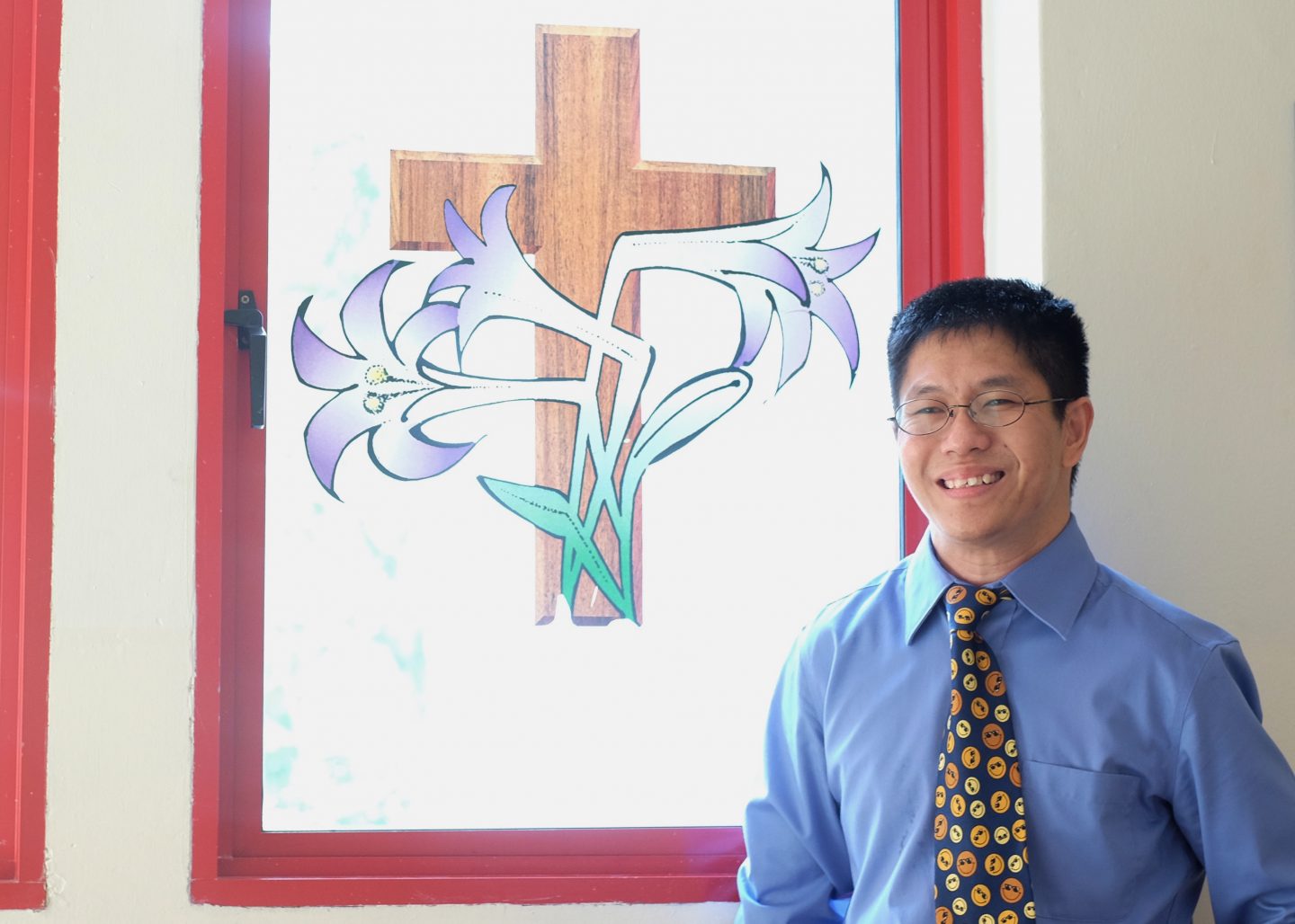
“Actually, all of us have disabilities,” Pastor Yeong observes. “For some, their disability is less visible, while mine is more visible.” Photo by Tan Huey Ying.
He encourages able-bodied Christians to view those with disabilities simply as persons, “not a lesser person, but another person created in the image of God”.
“All of us, whether able-bodied or disabled, want to belong, we want to be accepted. If God can accept us, disabled or otherwise, then we should be able to accept others too.”
We are an independent, non-profit organisation that relies on the generosity of our readers, such as yourself, to continue serving the kingdom. Every dollar donated goes directly back into our editorial coverage.
Would you consider partnering with us in our kingdom work by supporting us financially, either as a one-off donation, or a recurring pledge?
Support Salt&Light
